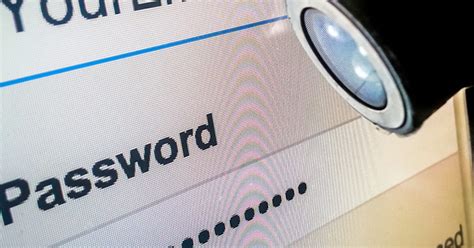People Sure Are Bad at Creating Passwords Subtitle: New Data Reveals a Lot of People Still Think “Password” Is a Good Password
In today’s digital age, where the protection of personal information is paramount, one would assume that people have become more savvy when it comes to creating strong passwords. However, recent data analysis has exposed a disheartening truth: many individuals still lack the basic understanding of password security. Shockingly, a significant number of people continue to believe that “password” is an acceptable password. This article delves into the reasons behind this alarming trend and highlights the importance of password hygiene in safeguarding our digital lives.

The Prevalence of Weak Passwords
Despite widespread awareness campaigns and constant reminders about the dangers of weak passwords, a surprising number of individuals persist in using easily guessable or commonly used phrases as their secret keys. According to the latest studies, “password” remains one of the most commonly employed passwords across various platforms and applications. This practice not only exposes users to potential hacking but also undermines the efforts of cybersecurity professionals in ensuring data protection.
The Psychology Behind Poor Password Choices
Understanding the psychology behind poor password choices can shed light on why individuals still opt for weak passwords. One contributing factor is human memory limitations. People often choose passwords that are easy to remember, which leads to the use of common words or personal information. Additionally, many individuals underestimate the risks associated with weak passwords, assuming that they won’t be targeted by hackers. This complacency, coupled with a lack of awareness about password security best practices, further perpetuates the problem.
The Fallacy of Complexity
Contrary to popular belief, complexity alone does not guarantee password security. While adding numbers, symbols, and uppercase letters can enhance the strength of a password, it is not enough. Hackers have become adept at cracking complex passwords through various techniques, including dictionary attacks and brute-force algorithms. Therefore, it is crucial to create passwords that are not only complex but also unique and unrelated to personal information.

The Importance of Password Managers
With the growing number of online accounts and the need for strong, unique passwords for each, relying on memory alone becomes impractical. This is where password managers come to the rescue. These applications securely store and generate complex passwords, eliminating the burden of remembering multiple login credentials. By utilizing password managers, individuals can enhance their overall security posture and reduce the risk of password-related vulnerabilities.
Educating for Better Password Practices
To address the pervasive issue of weak passwords, it is crucial to educate individuals about password security best practices. Organizations, educational institutions, and online platforms must take proactive measures to raise awareness and provide comprehensive guidance on creating strong and unique passwords. Promoting the use of password managers, encouraging two-factor authentication, and regularly updating security protocols can significantly contribute to fostering a more secure digital environment.

The persistent prevalence of weak passwords, as evidenced by the staggering number of individuals who still consider “password” a viable option, highlights a critical need for improved password hygiene. As technology advances and cyber threats become more sophisticated, it is imperative that individuals prioritize their digital security. By understanding the psychology behind poor password choices, recognizing the fallacy of complexity, and embracing password managers, we can collectively work towards a safer digital future. Let us take responsibility for our digital well-being and proactively adopt strong password practices to protect our valuable personal information from malicious actors.


